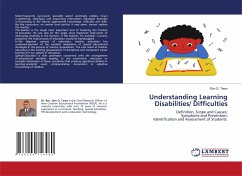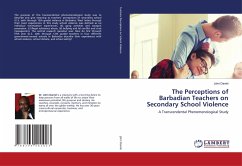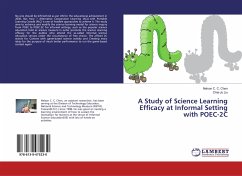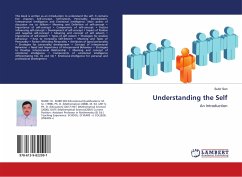
Understanding how informal teacher leaders operate in Mauritius
Versandkostenfrei!
Versandfertig in 6-10 Tagen
34,99 €
inkl. MwSt.

PAYBACK Punkte
17 °P sammeln!
Understanding how informal teacher leaders describe themselves, the duties they generally assume, and the way rectors and informal teacher leaders interact mutually provide insights in their contribution to school improvement. The research findings indicate that informal teacher leaders emerge notwithstanding the rectors' leadership style. Whilst factors such as support from rectors and colleagues, personal intrinsic motivation and positive school culture encourage the emergence of informal teacher leadership, other factors such as jealousy among colleagues, the dictatorial leadership style of...
Understanding how informal teacher leaders describe themselves, the duties they generally assume, and the way rectors and informal teacher leaders interact mutually provide insights in their contribution to school improvement. The research findings indicate that informal teacher leaders emerge notwithstanding the rectors' leadership style. Whilst factors such as support from rectors and colleagues, personal intrinsic motivation and positive school culture encourage the emergence of informal teacher leadership, other factors such as jealousy among colleagues, the dictatorial leadership style of some rectors, time constraints and a hostile school culture seriously impede it. The findings support the view that when leadership is judiciously shared and distributed by the rector, it can promote collegiality, reinforce team spirit, and strengthen the schools' resilience in facing crises. This research also highlights the importance of informal teacher leaders in capacity building and school management. The findings have important policy implications.












